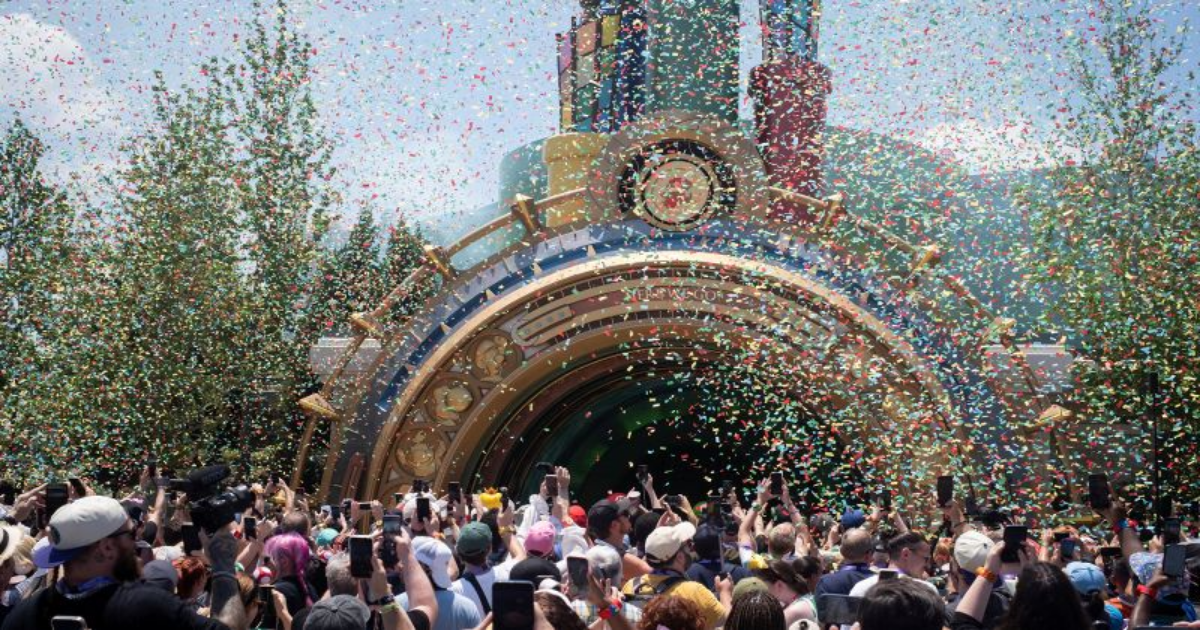CNN —
This is an epic — pardon the pun — week for Comcast and the wider media business.
Epic Universe, the first major new theme park in the US in 20-plus years, is opening in Orlando, Florida, on Thursday. Fans are expected to camp out overnight ahead of the official opening day.
Comcast’s NBCUniversal says Epic is the “most technologically advanced theme park” ever. It cost an estimated $7.7 billion and took more than six years to build. Accordingly, Comcast is putting all its corporate muscle into the launch.
Epic Universe “showcases the incredible creativity, innovation, and operational excellence of our talented teams,” Mark Woodbury, the chair of Universal Destinations & Experiences, told CNN.
Get Reliable Sources newsletter
- Sign up here to receive Reliable Sources with Brian Stelter in your inbox.
This moment is about more than a single company’s awesome new roller coasters. It’s about media giants meeting the growing demand for live experiences, or what some analysts call “the experience economy.”
“People want to immerse themselves in the characters and franchises and content they love,” said media analyst Rich Greenfield of Lightshed Partners.
Disney, the reigning theme park king, recently announced a deal to develop a new park and resort in Abu Dhabi. It is also doubling its fleet of cruise ships around the world.
Universal has more to come, as well. It is developing a theme park in the United Kingdom, slated to open in 2031. It also has smaller-scale projects in the works, like a horror experience in Las Vegas and a kids’ resort in Frisco, Texas.
Some of the same companies that have competed in the so-called “streaming wars” are also locked in “theme park wars,” Greenfield observed.
Universal’s two theme parks in Orlando have often been seen as the “add-on” for tourists who spend more time at Disney’s four parks there.
Disney has, of course, been paying close attention to its rival. In the past year, Disney has announced some major expansions to its Florida parks, giving fans new reasons to return in the years ahead.
Epic Universe may start to change those calculations. Woodbury predicted that Epic “will transform Universal Orlando Resort into a full week vacation destination that delivers mind-blowing experiences for global audiences.”
Historically, Disney CFO Hugh Johnston told investors last year, “Other non-Disney parks opening in Florida (have) been positive for Disney bookings.”
When Greenfield was at Epic for a sneak preview of the park this spring, he was struck by how much space for further expansion Universal still has.
He suggested this week’s launch is “step one to making Universal more of the destination versus the add-on.”
All four hours of NBC’s “Today” show were live from Epic Universe on Wednesday morning to show off the park to viewers, and all of Comcast’s top executives traveled to Orlando for Wednesday night’s opening ceremony.
Universal’s parks promote NBC’s intellectual property, of course — Epic has a “How to Train Your Dragon” world — but feature partner media brands, too, like The Wizarding World of Harry Potter from Warner Bros. Discovery (CNN’s parent) and Super Nintendo World from Nintendo.
In recent interviews, Universal executives have highlighted the new park’s trackless ride systems, augmented reality features, and high-resolution projections. They say Harry Potter and the Battle at the Ministry is the company’s most impressive attraction to date.
Both Universal and Disney have leaned heavily on parks to generate profits during a turbulent period elsewhere across the media industry.
As Comcast president Mike Cavanagh told analysts last month, the theme park business is unique because it “is, within media, not at all exposed to the shift in time on screens from one venue to another.”
After all, parks are the opposite of “screen time” — they’re where the characters from screens appear to come to life.
